The enlightening, best-selling book on understanding sustainable energy and how we can make energy plans that add up.
If you’ve ever wondered how much energy we use, and where it comes from – and where it could come from – but are fed up with all the hot air and ‘greenwash’, this is the book for you. Renewable resources are ‘huge’, but our energy consumption is also ‘huge’. To compare ‘huge’ things with each other, we need numbers, not adjectives.
Sustainable Energy – without the hot air addresses the energy crisis objectively, cutting through all the contradictory statements from the media, government, and lobbies of all sides. It gives you the numbers and the facts you need, in bite-sized chunks, so you can understand the issues yourself and organises a plan for change on both a personal level and an international scale – for Europe, the United States, and the world. In case study format, this informative book also answers questions surrounding nuclear energy, the potential of sustainable fossil fuels, and the possibilities of sharing renewable power with foreign countries.
Written by David MacKay, who was an esteemed Professor of Engineering at the University of Cambridge and Chief Scientific Advisor to the UK Department of Climate Change, this is an uplifting, jargon-free and informative read for all. In it, David debunks misinformation and clearly explains the calculations of expenditure per person to encourage people to make individual changes that will benefit the world at large.
If you’ve thrown your hands up in despair thinking no solution is possible, then read this book – it’s an honest, realistic, and humorous discussion of all our energy options.

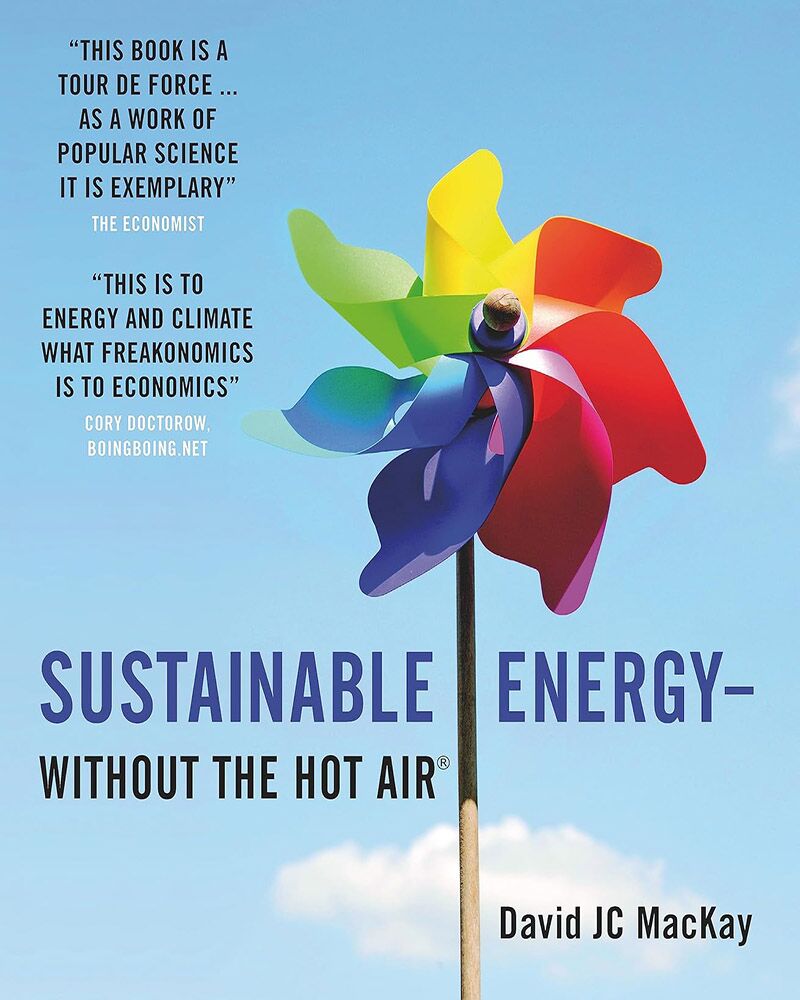
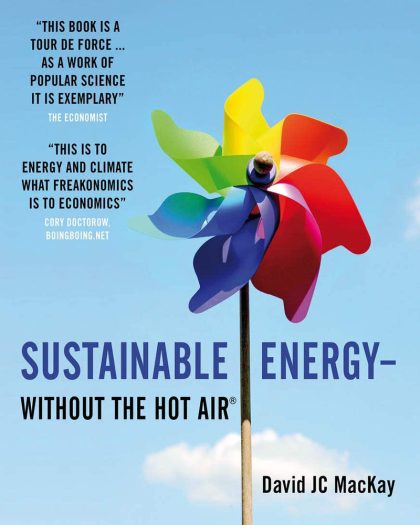
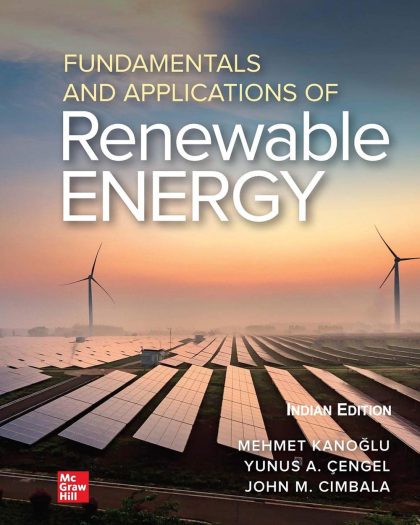
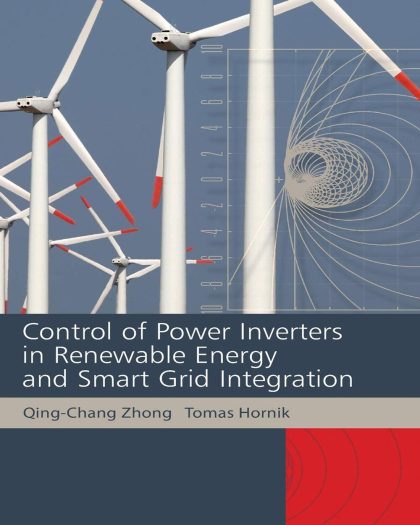
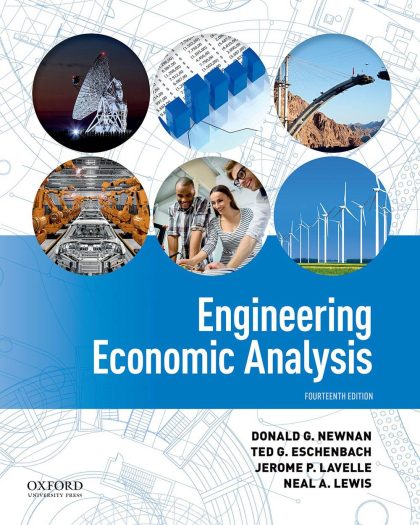
Es werden diverse Themen behandelt, welche einfach und verständlich nahe gebracht werden. Die Abhängigkeiten werden teils etwas vereinfacht, was jedoch kein Problem ist, denn es kommt global betrachte ja auf die Größenordnung an! Und die meistert das Buch super. Außerdem ist der Schreibstil sehr angenehm.
Viele Grafiken, welche super wertvoll sind, inkl. Quellenangaben.
Z.B. wie viel Energie je km der Individualverkehr, E-Zug, Diesel-Zug, Flugzeug,... benötigt. Wie stark die CO2-Zunahme in den letzten Jahrzehnten war usw.
Eins der wenigen mir bekannten Bücher welche einen holistischen Ansatz wählen und die Probleme der Menschheit darzulegen. In dieser Form würde ich mir nun noch eines wünschen, welches die Nahrungsmittelversorgung sowie die Umwelt an sich mehr einbeziehen würde.
Das Buch gibt es übrigens auch online als Download frei verfügbar, einfach nach "sewtha" suchen.
Ich habe mir das Buch gekauft, denn auf dem Sofa schmökert es sich damit super. Das .pdf. hab ich zum Nachschlagen auf dem PC.
Mr. MacKay did a wonderful job of getting a large amount of hard data together about the UK and to a lesser extent the world, an power, in particular, electrical energy use and generation, now and in the future. It was originally free on line at a web site "withoutthehotair", however as of the date of this write up, unfortunately it is no longer available on line.
MacKay is a British, so this book is written about the United KIngdom, and not the US. However, all of the basic principals and arguments that he presents can be easily applied to the USA. He starts from the place that we like the life that we live with ample and reasonably priced electricity. He does address the CO2 emission issue, for the global warming crew, so there is hard information to consider. He is not going down the hair shirt route that we all need to cut our energy use by x percent or the world will cook tomorrow. It is so nice to look at a book that deals with real numbers and the world as it is, and that people like living in this world. He looks briefly at the world and history of CO2 emission over the years essentially since before the industrial revolution.
He does a wonderful and very comprehensive job of looking at the different proposals for generating energy such as tidal, wave, wind, geothermal, etc. The specifics are tied to the UK, but they can be applied to the USA or any other country as applicable. Tidal could apply to the Bay of Fundy for example in North America. He has a breakout for where all of the energy including the electrical energy goes which is interesting. He breakouts out total energy consumption including air travel. He looks at the energy that is used for housing and different approaches. All of this is preparation for the last section of the book, where you can play king for a day, and devise your own approach to providing the required electrical power fro the UK by selecting the option that you prefer. He includes nuclear as an option.
My favorite section is 27, "Five Energy Plans for Britain", where he presents five different options to illustrate the choices that one must make in deciding what options to select among wind, tide, solar, geothermal. nuclear, solar in the desert, hydro, waste etc.
MacKay writes in a very readable and entertaining style. But he is also very careful to explain his numbers and to build his scenarios from the ground up. I found his analyses convincing and stimulating. Sometimes more detailed or more mathematical analysis is pushed off to supplementary appendices, but those are also well worth reading.
I learned many things. One key factor I hadn't appreciated was the enormous land areas required for renewable sources, such as wind, solar, biofuel, or geothermal to make a substantial difference. For example, MacKay calculates that it would probably require 10% of the UK's surface to be dedicated to wind farms in order to make a significant contribution to the UK's current energy needs. Even larger areas are required to generate meaningful quantities of biofuel. If an area the size of Africa were dedicated to growing biofuel, that might only replace a third of current world oil needs. But MacKay also points out there may be places where building vast energy farms makes sense. For example, a 20,000 square km solar power farm in the Sahara could be one way to meet the UK's energy needs.
MacKay explains how technologies such as electric cars or heat pumps reduce energy needs, independent of how the electricity is generated. He shows us that because electric motors are extremely efficient, burning oil in a central power plant and using the electricity to run an electric car actually requires much less energy than traditional cars. Similarly, he shows how using a central electric power station to power home heat pumps is a significantly more efficient way to heat houses than burning gas or oil at the house. (I had definitely not understood this before!) MacKay would prefer we use green technology to create the electric power, but it is interesting that even using fossil fuel power stations, electric cars and heat pumps still reduce overall fossil fuel consumption.
In his concluding chapters, MacKay outlines several possible plans that "add up". All of them have significant negatives, either through reliance on nuclear power, or enormous environmental impact, or enormous expense. He doesn't pick a winner from among these options, but he emphasizes that we need to chose a plan rather than simply saying "no" to every possible option.
Regardless of whether you agree with Prof Mackay's goal of shifting to alternative energy supplies, this book is definitely worth reading. MacKay succeeds admirably in explaining the raw numbers, so we can see what realistic energy choices are available.
Having read this book (and having it available as a reference) I now feel much better equipped to read the plethora of ideas, plans, suggestions, trivia, wishful thinking and occasional good sense that circulate around energy policy. MacKay is right that numbers matter, and plans need to add up!